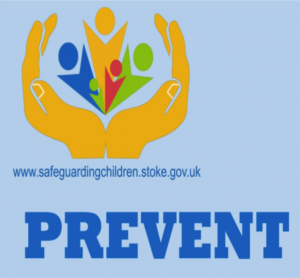PREVENT STRATEGY
The government has published guidance for authorities, including schools, on their responsibilities under the Counter-Terrorism and Security Act, which came into effect on 1 July 2015. Under the Act, schools and other authorities have a duty to “have due regard to the need to prevent people from being drawn into terrorism”.
What is the Prevent strategy?
Prevent is a government strategy designed to stop people becoming terrorists or supporting terrorist or extremist causes.The Prevent strategy covers all types of terrorism and extremism, including the extreme right wing, violent Islamist groups and other causes.
How does the Prevent strategy apply to schools?
From July 2015 all schools (as well as other organisations) have a duty to safeguard children from radicalisation and extremism. This means we have a responsibility to protect children from extremist and violent views the same way we protect them from other dangers. Importantly, we can provide a safe place for pupils to discuss these issues so they better understand how to protect themselves.
What does this mean in practice?
Many of the things we already do in school to help children become positive, happy members of society also contribute to the Prevent strategy. These include:
- Exploring other cultures and religions and promoting diversity
- Challenging prejudices and racist comments
- Developing critical thinking skills and a strong, positive self-identity
- Promoting the spiritual, moral, social and cultural development of pupils, as well as British values such as democracy
We will also protect children from the risk of radicalisation, for example by using filters on the internet to make sure they can’t access extremist and terrorist material, or by vetting visitors who come into school to work with pupils.Different schools will carry out the Prevent duty in different ways, depending on the age of the children and the needs of the community.
KEY TERMS
Extremism – vocal or active opposition to fundamental British values such as democracy, the rule of law and tolerance of different faiths and beliefs
Ideology – a set of beliefs
Terrorism – a violent action against people or property, designed to create fear and advance a political, religious or ideological cause
Radicalisation – the process by which a person comes to support extremism and terrorism
WHERE TO GO FOR MORE INFORMATION:
Contact the school
If you have any questions or concerns about the Prevent strategy and what it means for your child, please do not hesitate to contact the school.
External sources
The following sources may also be useful for further information:
Prevent – Parent Information Leaflet
Who to Contact if You Have Worries or Concerns
GOV.UK https://www.gov.uk/government/publications/protecting-children-from-radicalisation-the-prevent-duty
Prevent duty guidance: for England and Wales, HM Government www.homeoffice.gov.uk
Frequently asked questions, Prevent For Schools http://www.preventforschools.org/?category_id=38
What is Prevent? Let’s Talk About It http://www.ltai.info/what-is-prevent/






